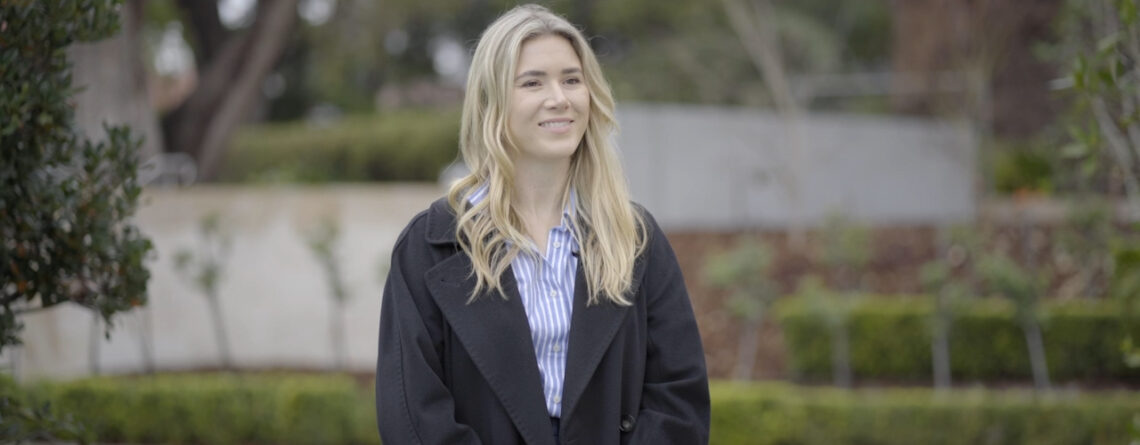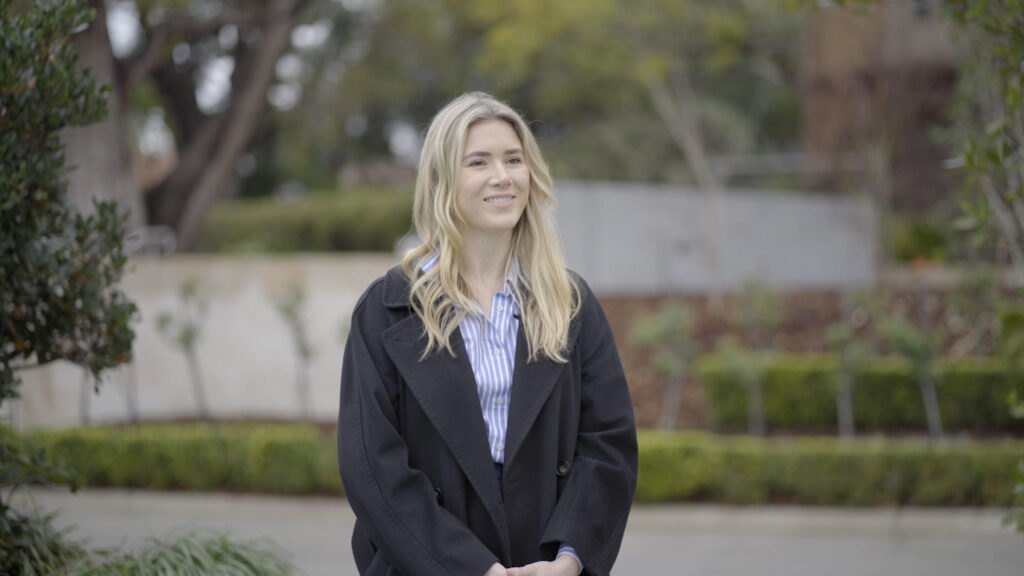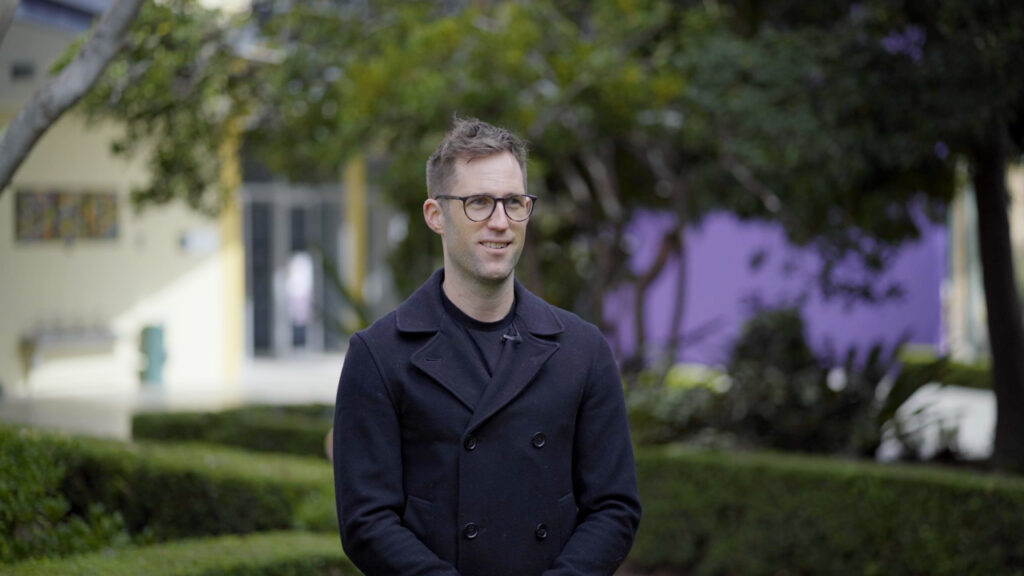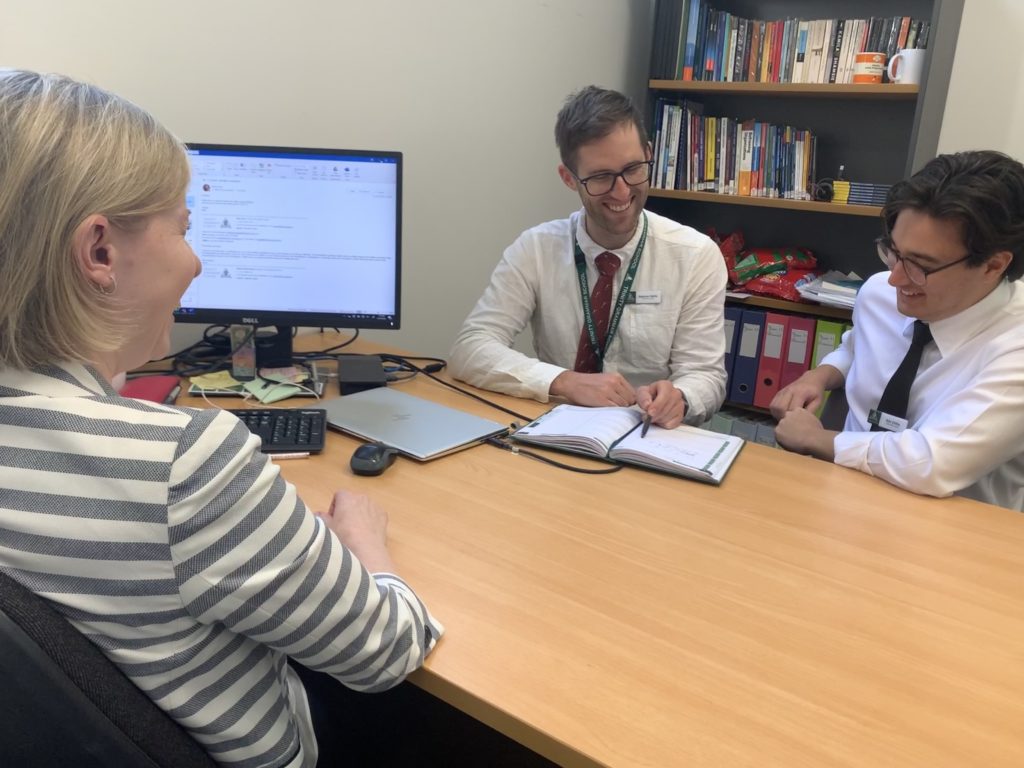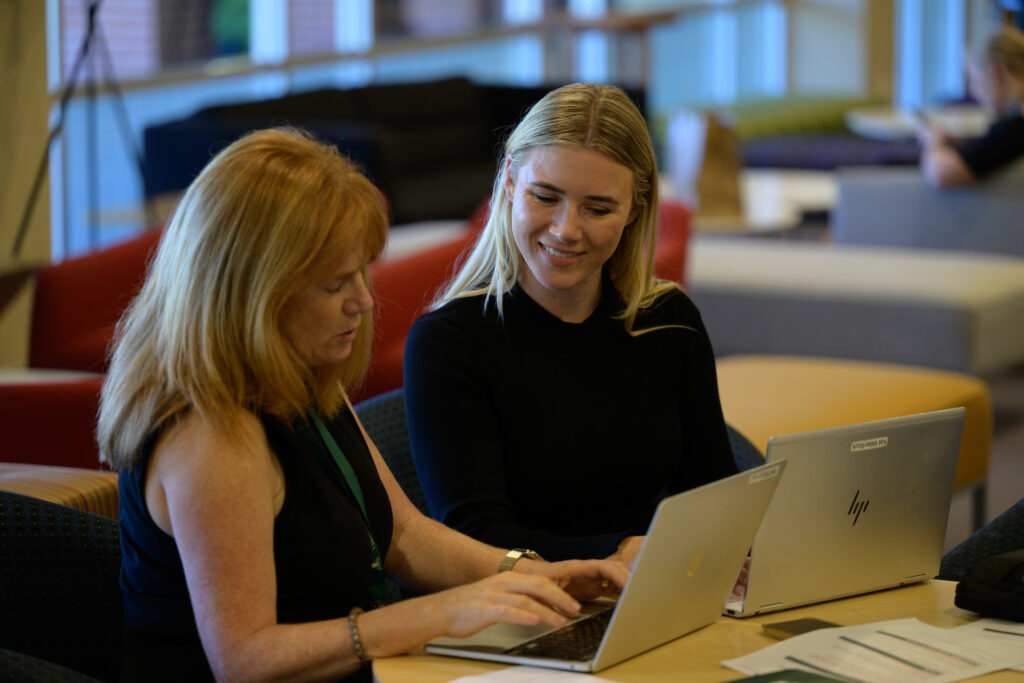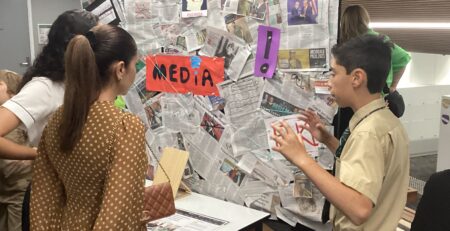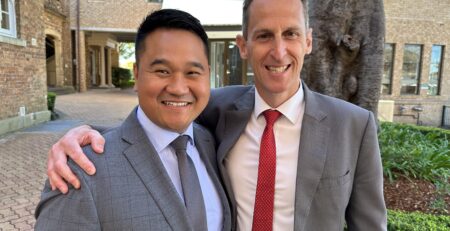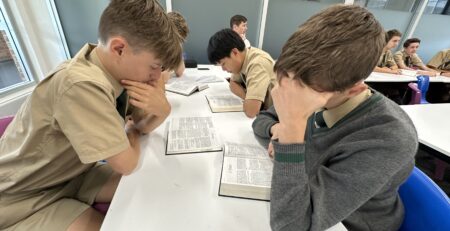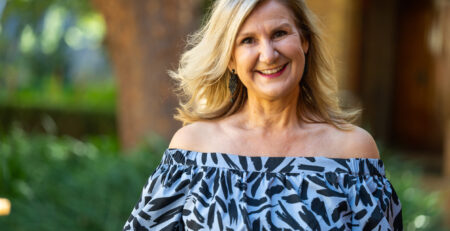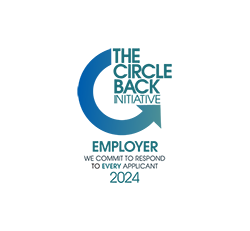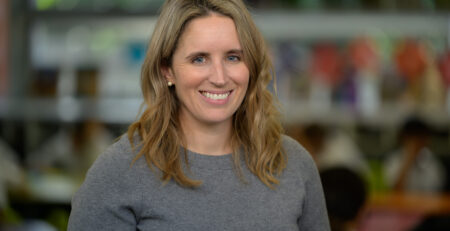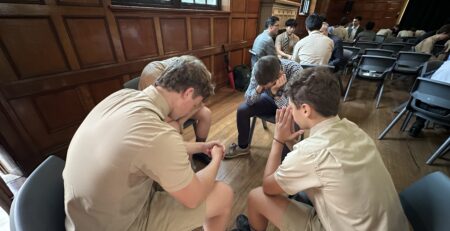Internship pathways at Trinity | Growth, Challenge and Support
In 2019, while she was still studying at the University of Sydney, Ms Kat Miller-Bock was one of Trinity’s first interns. Now, she has moved into a permanent role in the English department in Trinity’s Middle and Senior School. She looks back on her internship as one of the most formative experiences of her teaching career so far.
“I found the internship a really beneficial experience,” she says. “Usually as a university student, you do isolated pracs over the years and you don’t get that continuity. I just found that it allowed me to get to know the students, the way the School ran, and to build that confidence as a final year university student.”
“The continuity meant that I was able to grow in confidence and in understanding of who I am as a teacher and what approach I would like to take with the students.”
Although he started working at Trinity as a peripatetic Voice Teacher in 2012, Mr Spencer Darby decided a decade later, in 2022, to retrain as a classroom teacher. He took on an Internship at Trinity as part of those studies before coming on board as a teacher – and now Director of Music at the Preparatory School – in 2023.
Despite his extensive experience at Trinity, he still credits his time as an Intern as something that helped him to really grasp how a school classroom environment functions in reality, something he realised was quite far from what he had expected based on theory at university.
“I felt that there was a bit of a disconnect at university between the academic language and academic environment, and the reality of being in a school, around kids, the realities of behaviour management, the realities of implementing a programme, the realities of the day-to-day pastoral care needs you have with students. The internship programme was a bridge between those two environments.”
It’s a sentiment Ms Miller-Bock agrees with:
“After university, you’re kind of thrown into a classroom setting, but through being able to do the internship at Trinity, it was kind of like a ‘soft entry’ into the workforce. I was able to really wrap my head around mastering content and also behaviour management and I feel like I eased into the role more than I would have otherwise.”
This idea of the internship being a softer place to land, rather than being thrown into full-time teaching is something that Mr Darby found really comforting as he found his feet in his teaching career.
“It allowed me freedom to fail. I know that sounds a bit odd,” he laughs. “But I was in a classroom regularly with extremely experienced and supportive staff, so when I had lessons or moments or minutes that just didn’t work in an educational sense, it afforded me that freedom to fall in a puddle, recognise that that didn’t work and try something different.
“That was a hugely important experience to feel that I had the freedom to fail in an environment where I was supported.”
Both former interns had ‘official’ mentors, but both said that, in reality, they were mentored by full departments, with everyone taking a direct interest in their development and guiding them along in various aspects of their internship experience.
A huge drawcard of the internship experience, says Ms Miller-Bock, is that it is a paid programme, something that many schools aren’t able to offer pre-service teachers, but one that is often a roadblock to moving into the Education sector for those who can’t afford to take on unpaid work.
“It took a lot of stress off in that final year of university,” she says. “I was able to focus on developing my craft as a teacher and really be able to throw myself into the role.”
Her advice to those looking to be a part of Trinity’s Internship Programme?
“Get involved as much as possible. You can get so much out of it, the more you put yourself out there and get out of your comfort zone and take advantage of all the opportunities they offer here.”
Register your interest in a Trinity Internship and sign up to attend our next info event. Click here.

